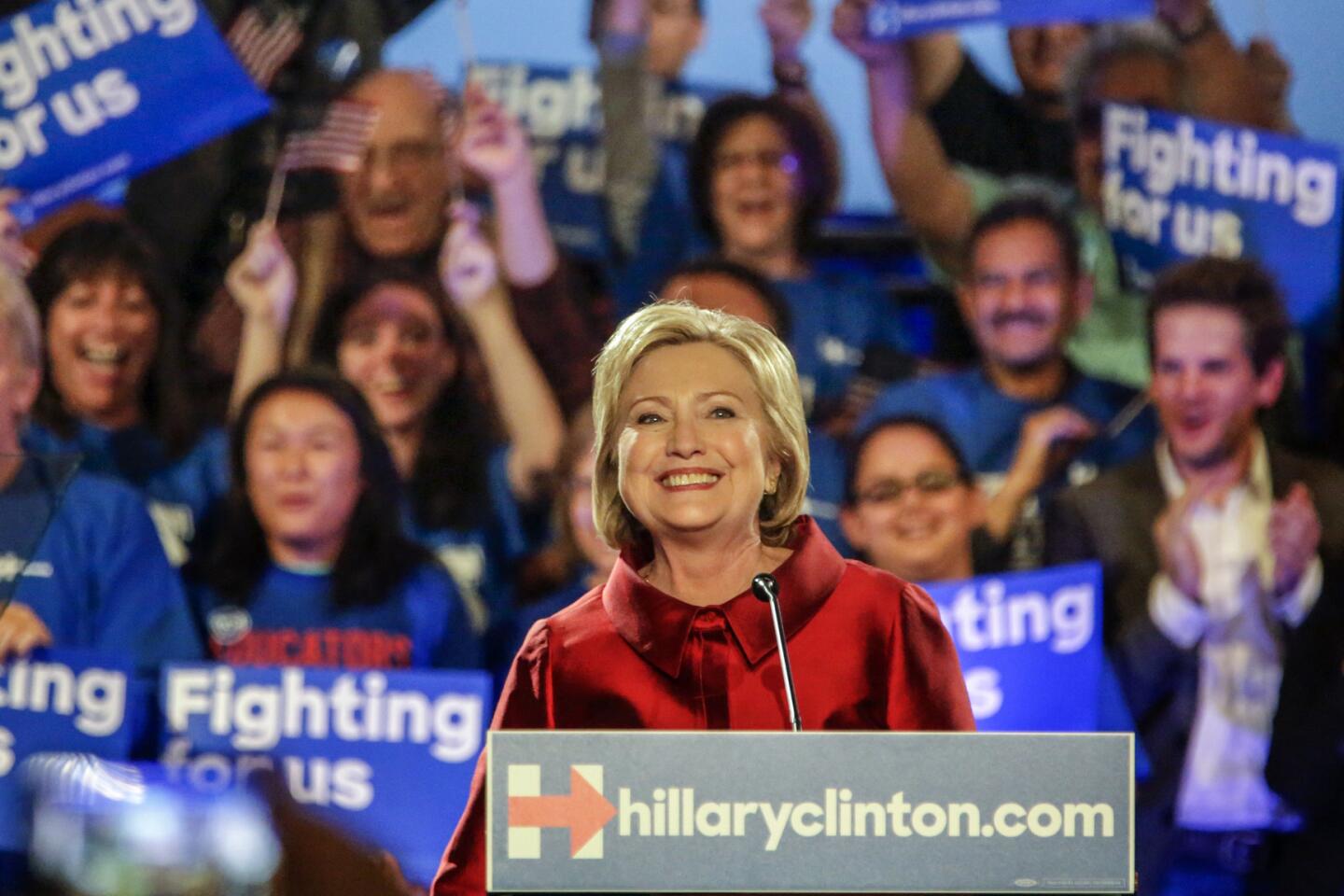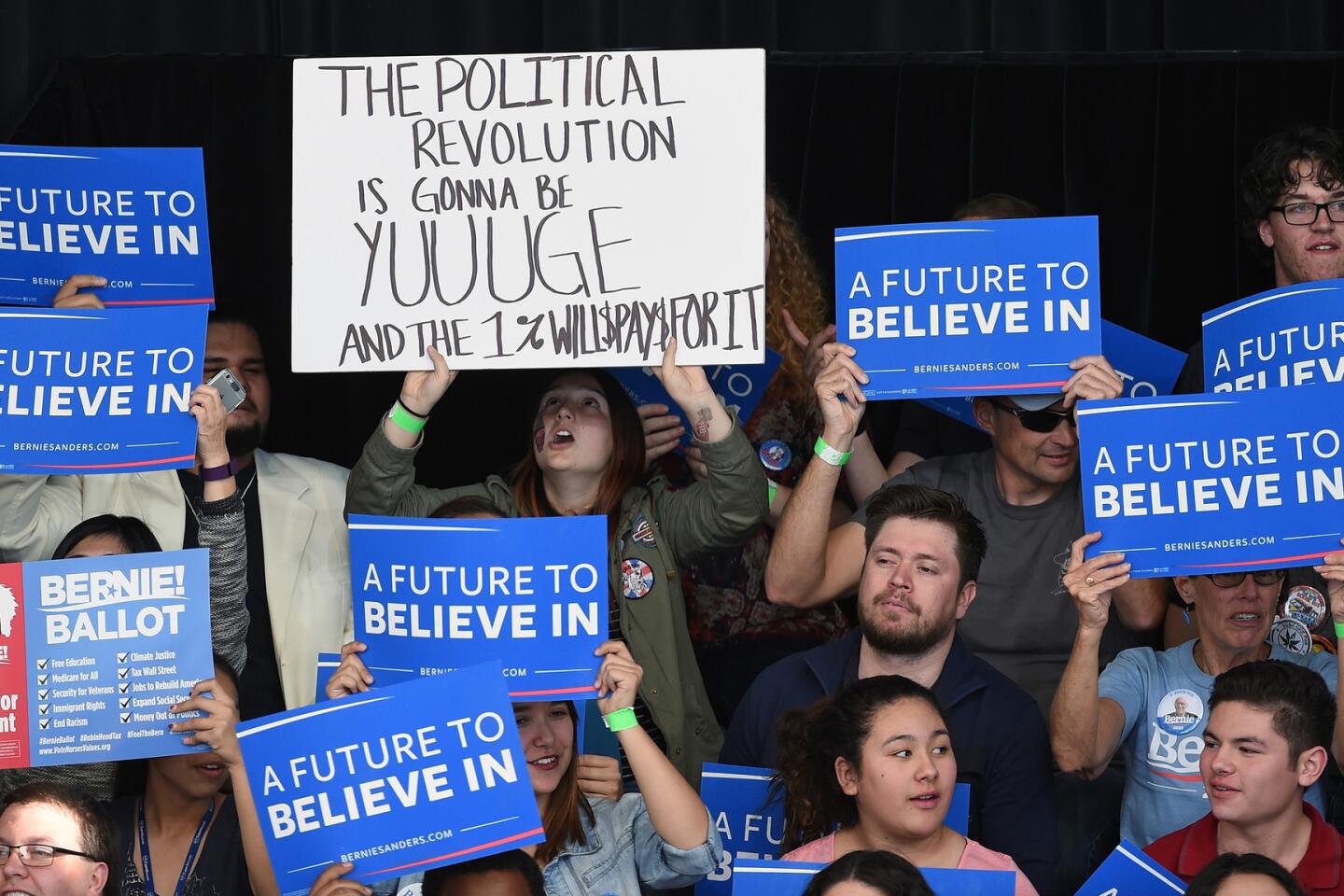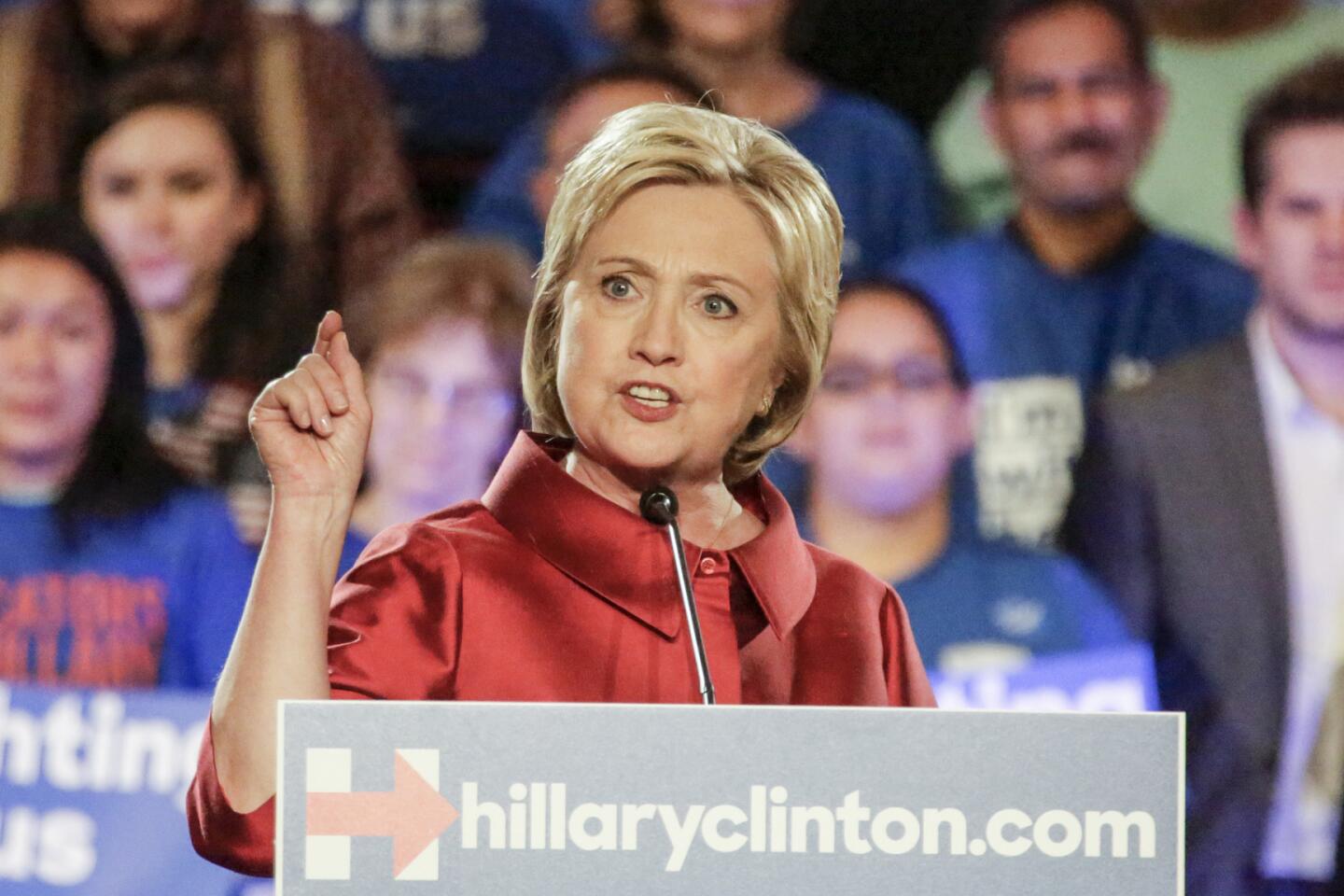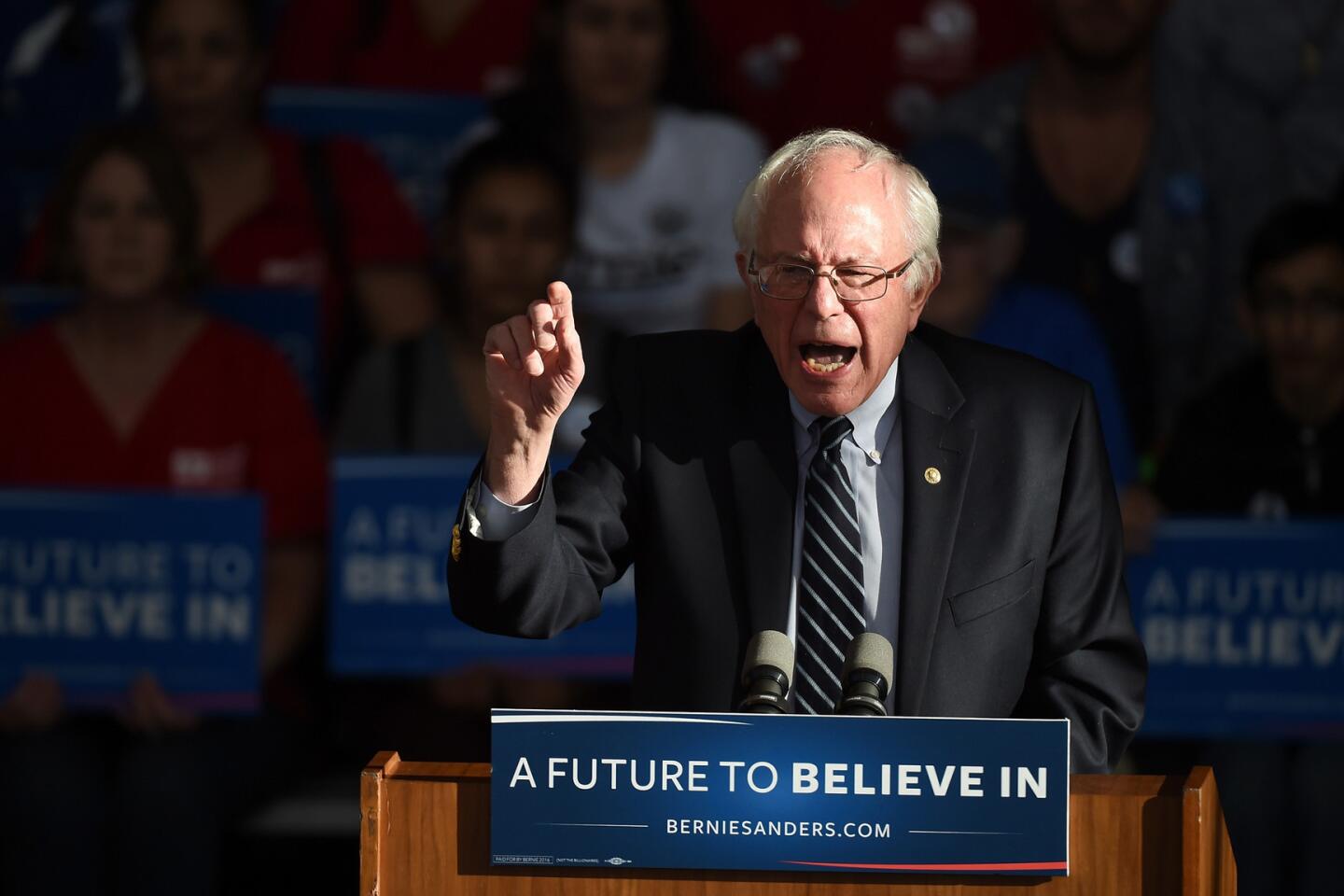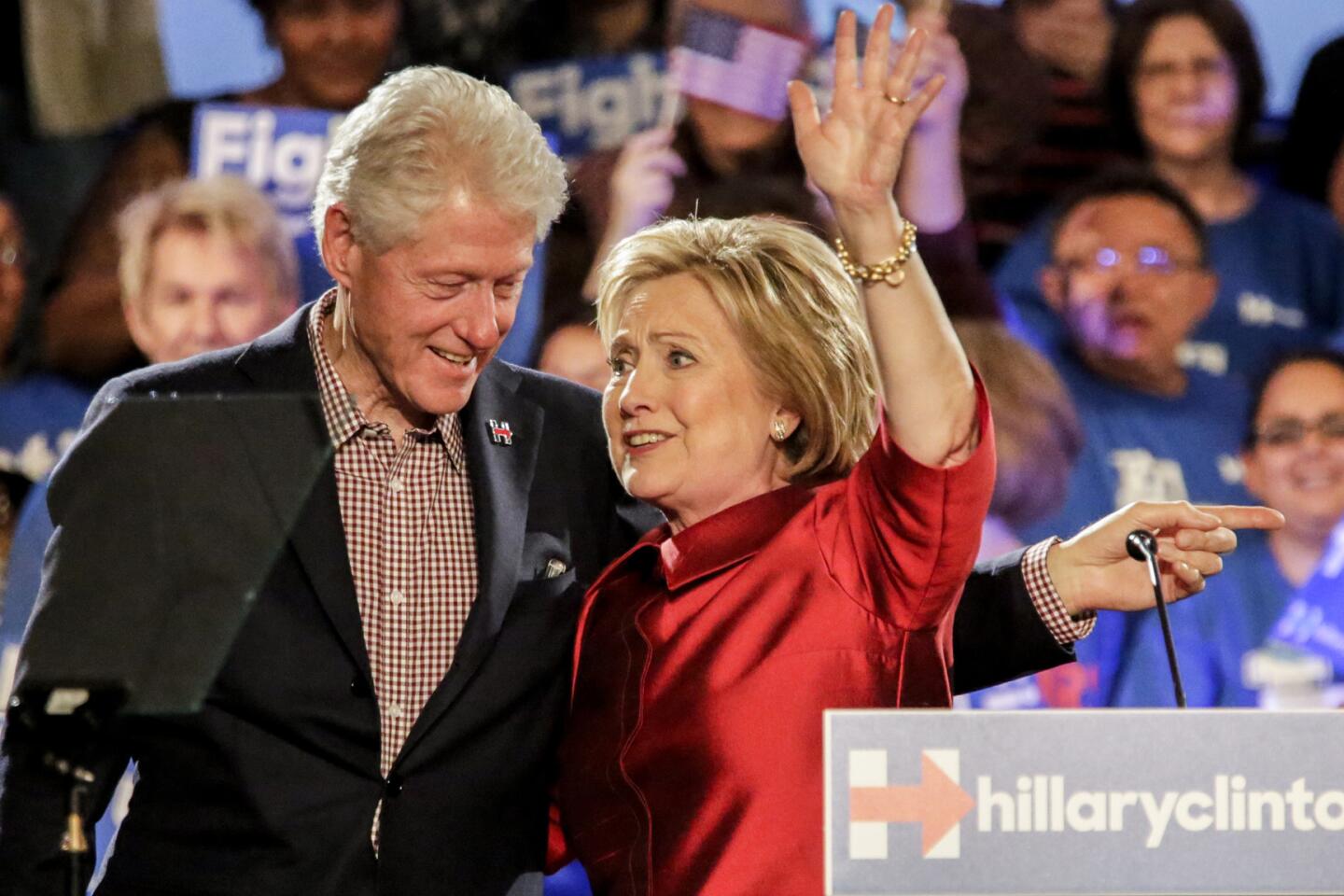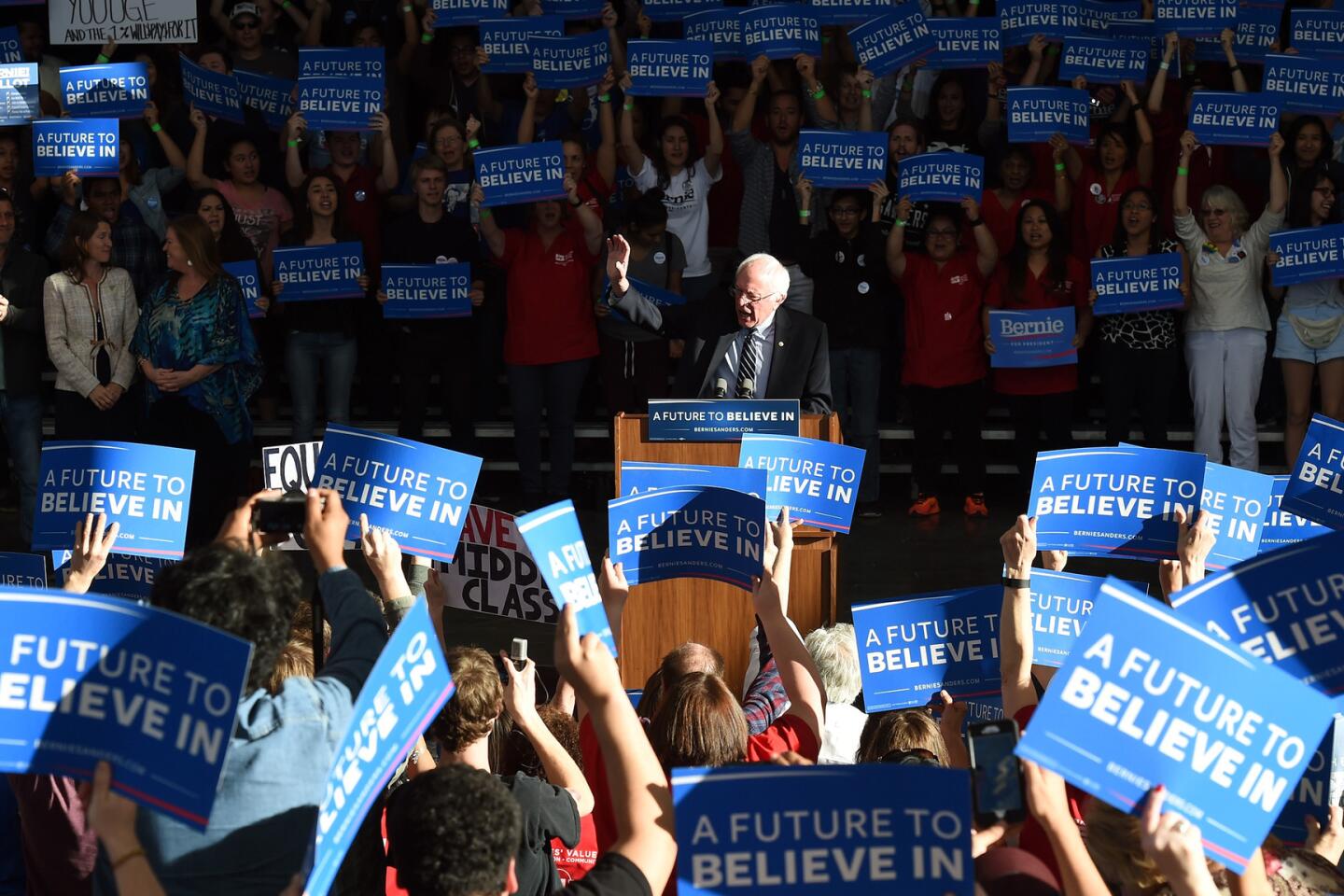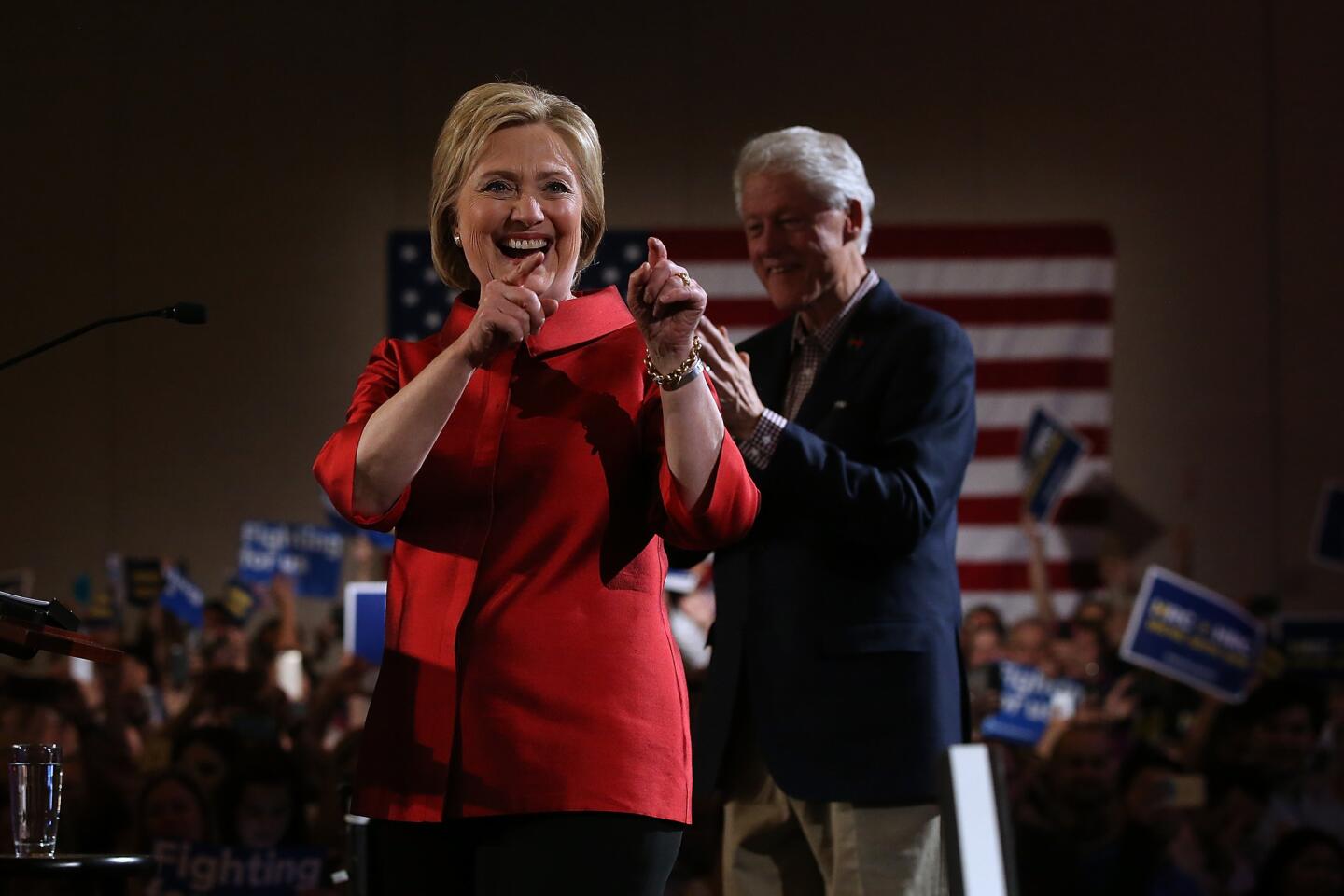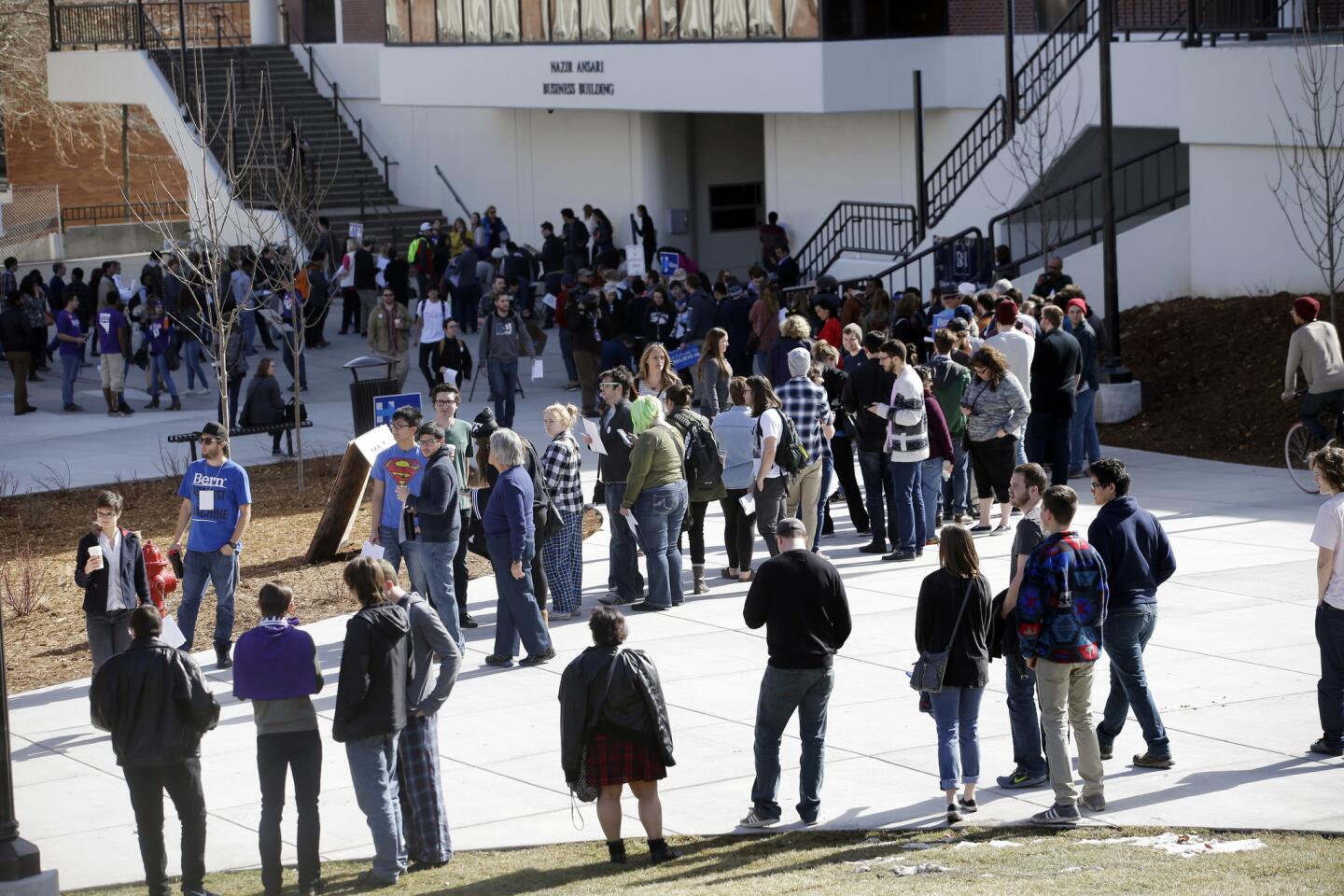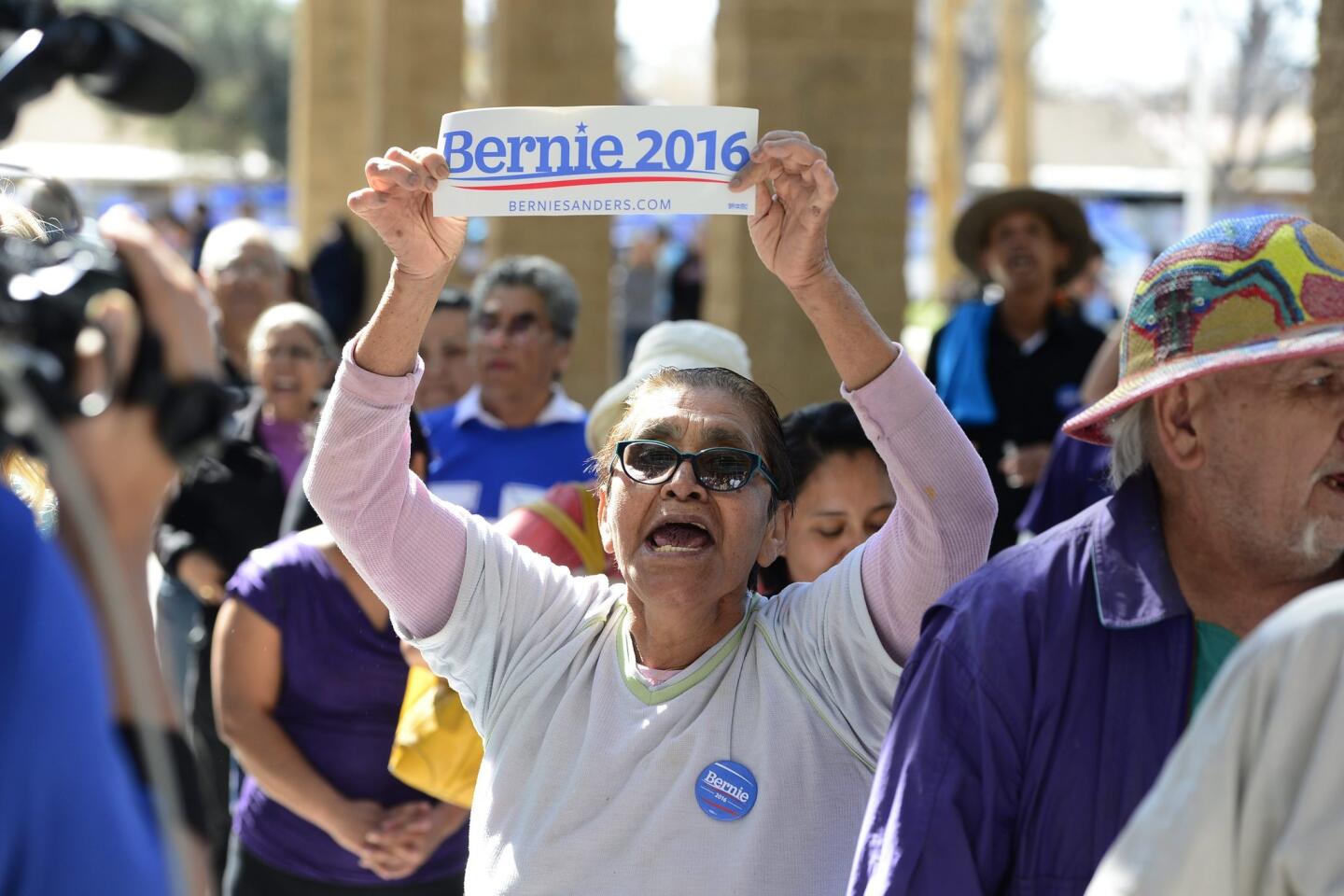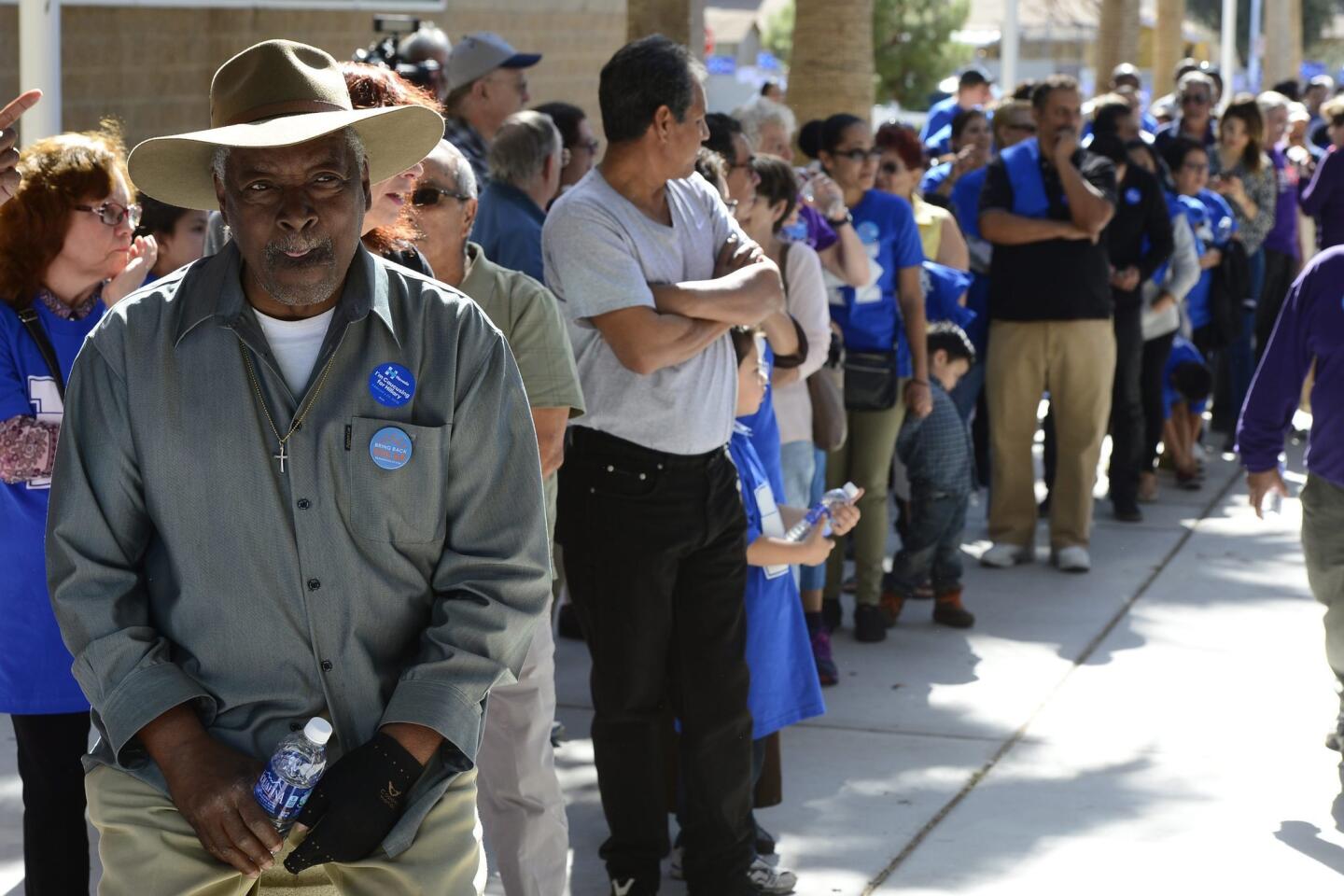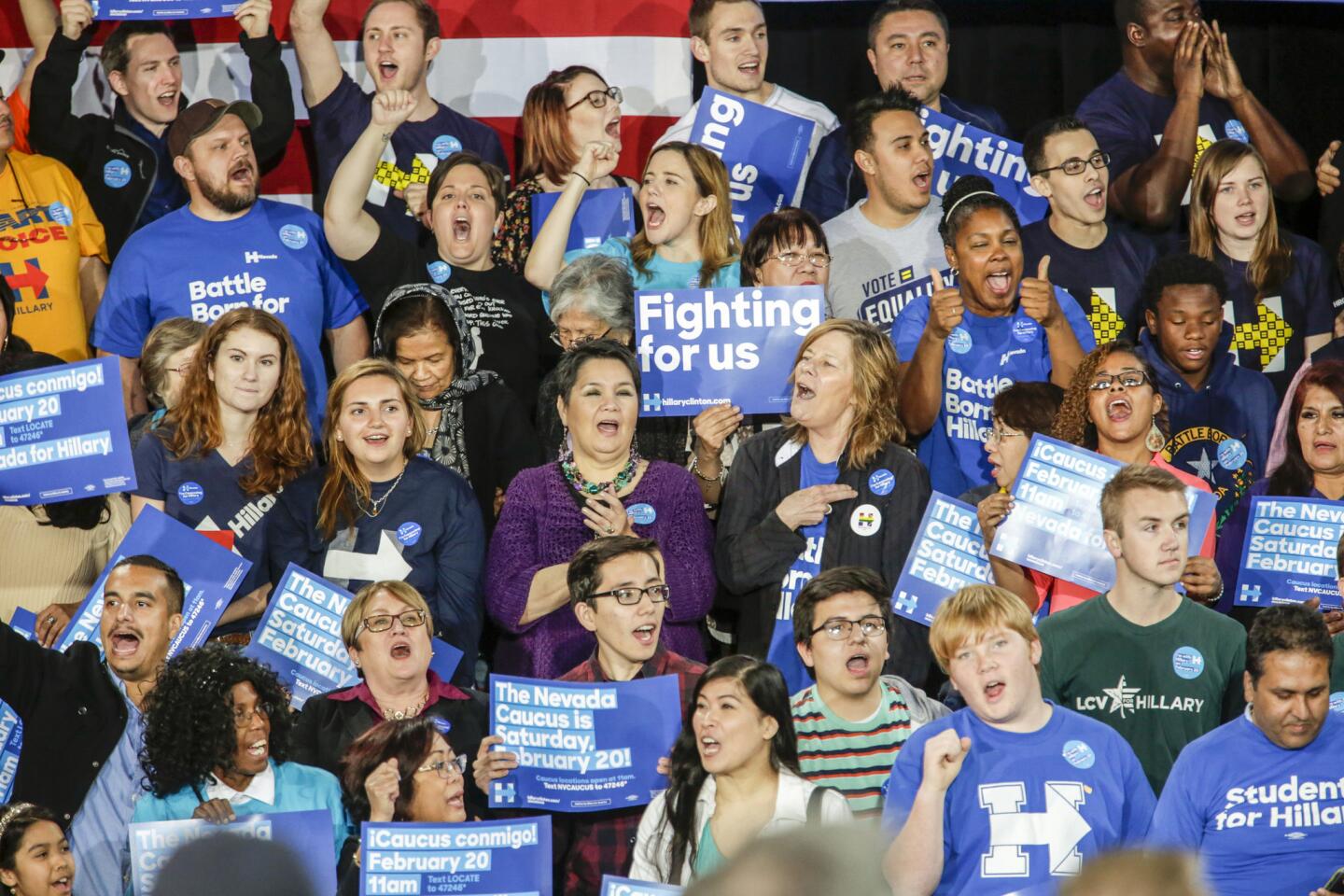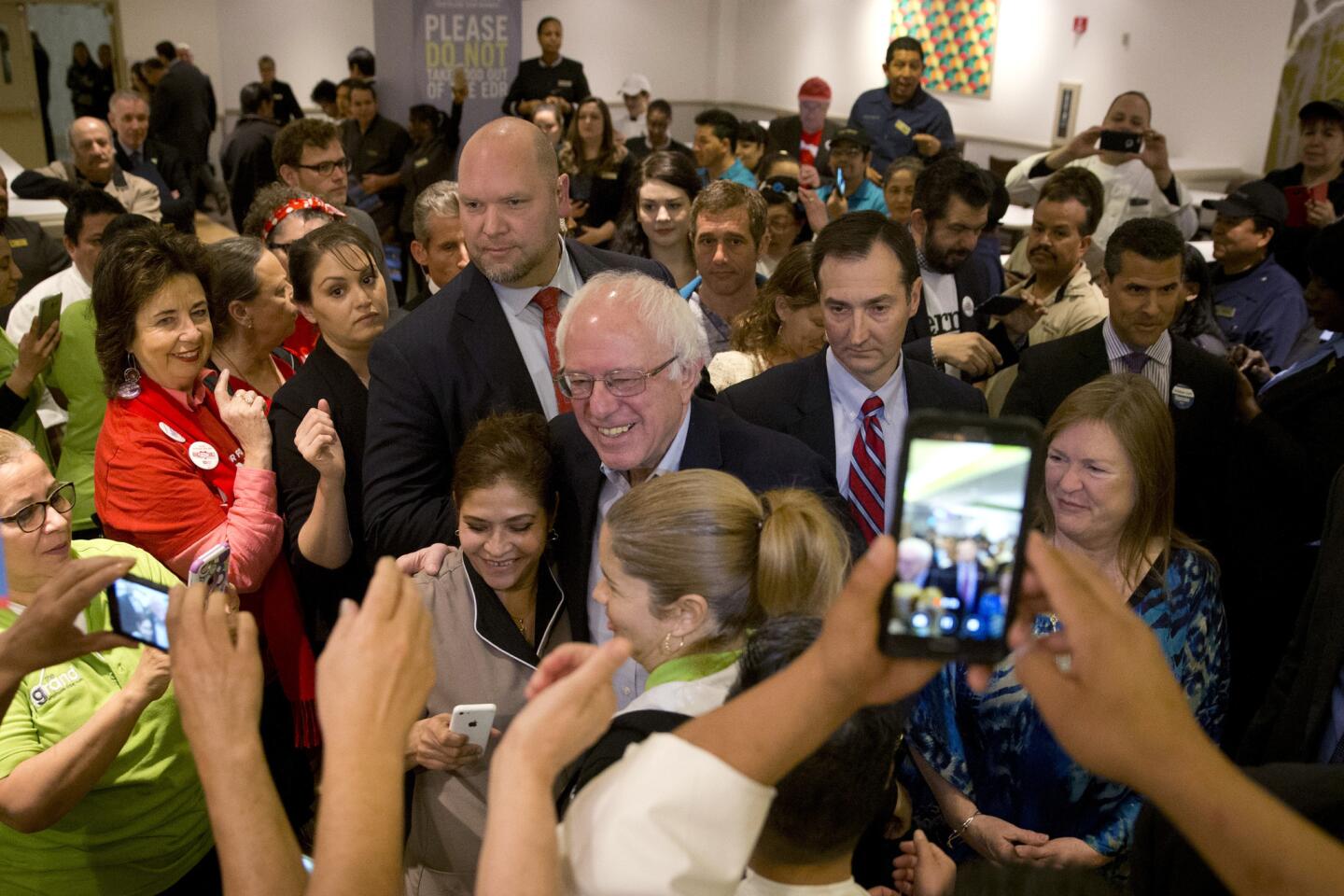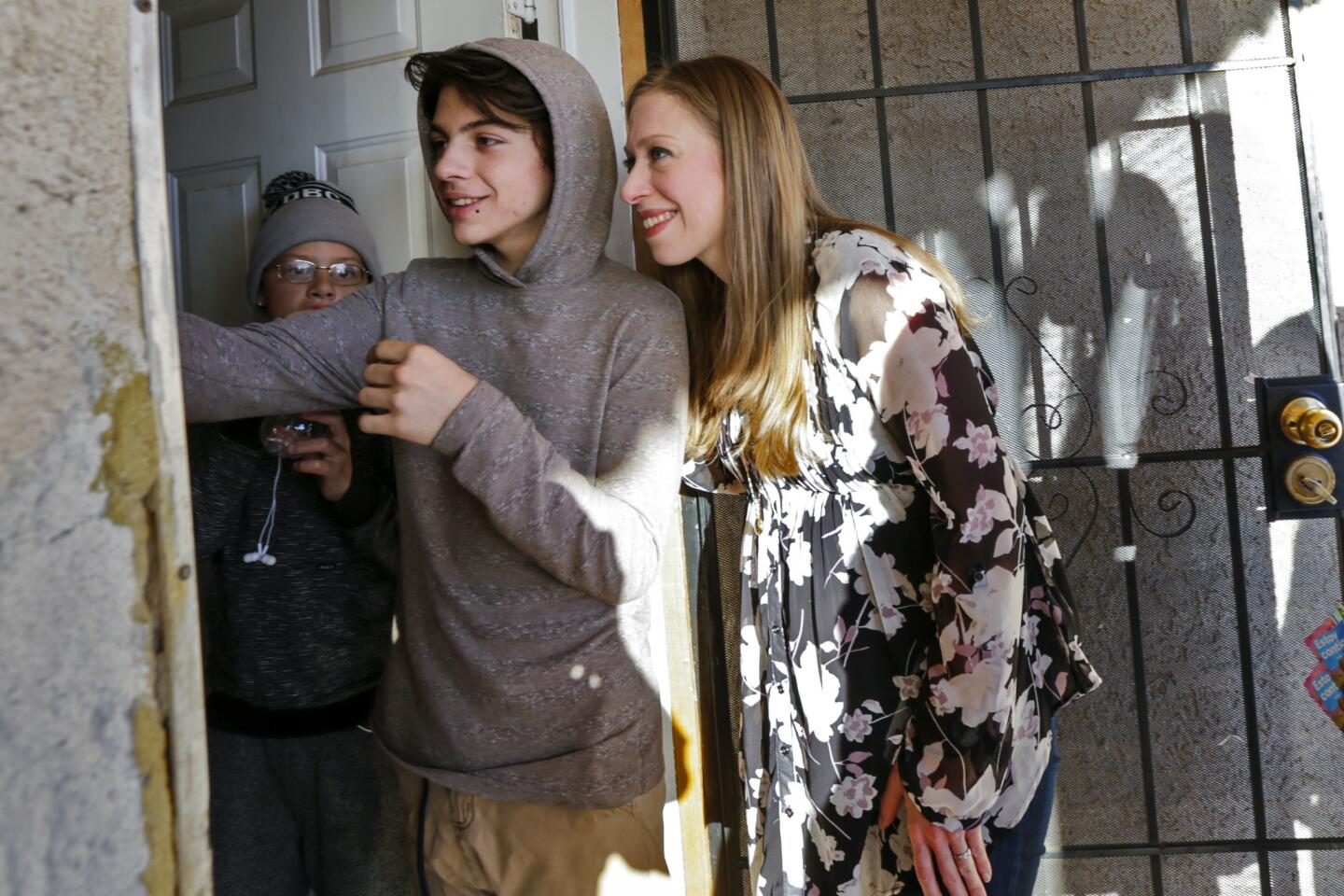Women and minorities turned out for Hillary Clinton at Nevada caucuses, entrance polls show
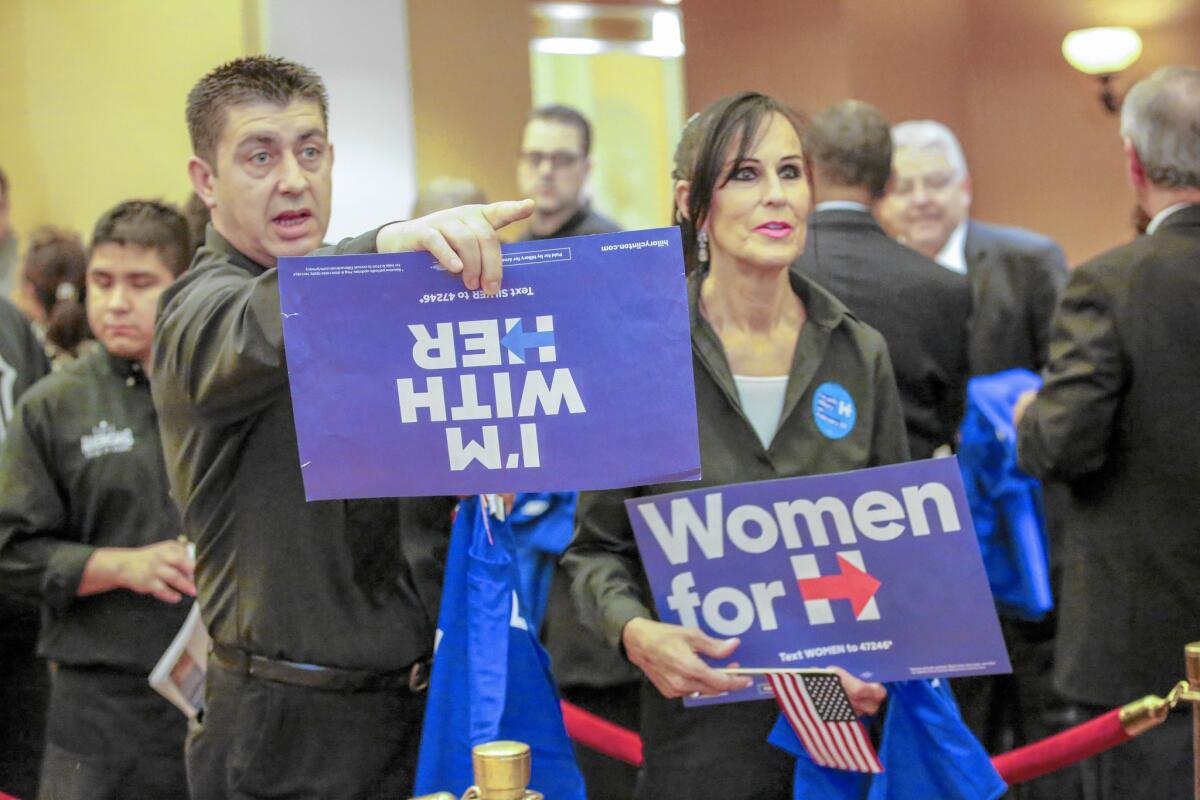
- Share via
Reporting from WASHINGTON — Hillary Clinton built her victory over Sen. Bernie Sanders in Nevada on the strength of her support among women and minorities, the voting blocs that her campaign confidently predicts will carry her toward the Democratic nomination in the next several rounds of primaries.
According to a poll of voters entering caucus sites around the state, Clinton beat Sanders 57% to 41% among women. Sanders held a somewhat smaller lead among men, according to the entrance survey, conducted by Edison Research for the Associated Press and the major TV networks.
To compound Clinton’s margin, women made up well over half the turnout, the entrance poll found.
Clinton also established a big edge among nonwhite voters, while the two candidates closely split whites. Sanders won among younger whites, Clinton among their elders.
Clinton’s double-digit lead among minority voters stemmed from a huge edge, better than 3 to 1, among African American voters. Her black support will play a critical role in the campaign’s next contest, the South Carolina primary on Saturday, as well as in the large number of Southern and Midwestern states that vote in the first half of March.
TRAIL GUIDE: All the latest news on the 2016 presidential campaign >>
Sanders may have beaten Clinton among Latinos in Nevada — the preliminary entrance poll figures show that he did — but that remains somewhat unclear. The poll’s margin of error is larger with small groups, and Latinos made up about 1 in 5 voters in the caucuses. Moreover, other uncertainties that come with any entrance poll add additional questions to the detailed demographic data.
Beyond gender and ethnicity, the other big division in the Nevada vote pitted experience and electability against empathy and trust. That tension has defined the Democratic race throughout the campaign, and it continued Saturday.
About 1 in 4 Democratic caucusgoers said the most important factor in choosing a nominee was someone with the “right experience” to be president. That group voted by nearly 10 to 1 for Clinton, according to entrance polls. Another 1 in 5 said their top priority was a candidate who can win in November. Clinton overwhelmingly won that group, too.
Sanders won heavily among the roughly one-quarter of voters who said the most important thing was a nominee who cares about people like them. And he racked up a huge margin among the quarter of voters who said the biggest thing was a candidate who is “honest and trustworthy.”
Those areas of strength for Sanders point to a problem for Clinton — convincing voters of her empathy and honesty — that has dogged her throughout the race and continues to challenge her, particularly among younger voters.
As in New Hampshire and Iowa, the first two contests in the race, voters who turned out in Nevada leaned further to the left than Democrats have in the past.
About 7 in 10 caucus voters called themselves liberal. In 2008, the last time the state had contested Democratic caucuses, about 45% of voters chose that label.
About half of Nevada caucusgoers said they want to continue President Obama’s policies, and Clinton won that group handily.
But about 4 in 10 voters said they wanted the country to move to a more liberal path than Obama’s. Sanders won by better than 3 to 1 among them.
How closely to stick to Obama’s policies has been a point of contention in the Democratic debates, with Clinton tying herself firmly to Obama and Sanders offering some criticisms of the president.
That issue almost certainly will be prominent in the South Carolina primary, where black voters, who overwhelmingly back Obama, make up a majority of the likely electorate.
ALSO
Trump wins South Carolina primary: ‘Let’s put this thing away’
Bush bows out: How ‘Jeb!’ campaign went from exclamation point to punchline
Victory in Nevada caucuses sets Hillary Clinton back on track for Democratic nomination
More to Read
Sign up for Essential California
The most important California stories and recommendations in your inbox every morning.
You may occasionally receive promotional content from the Los Angeles Times.
